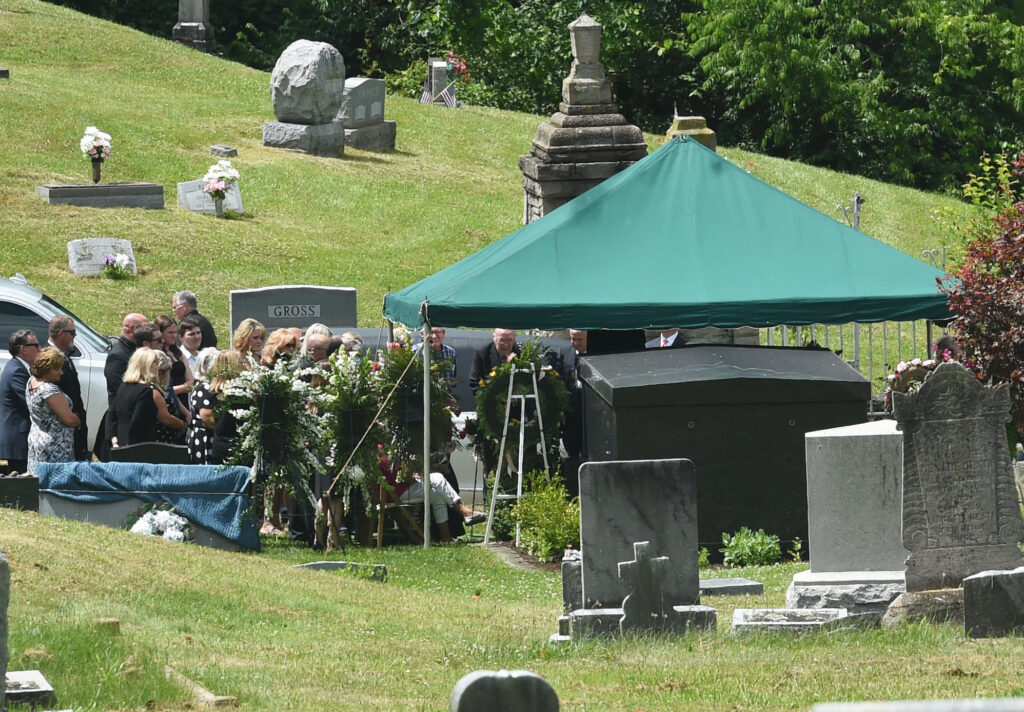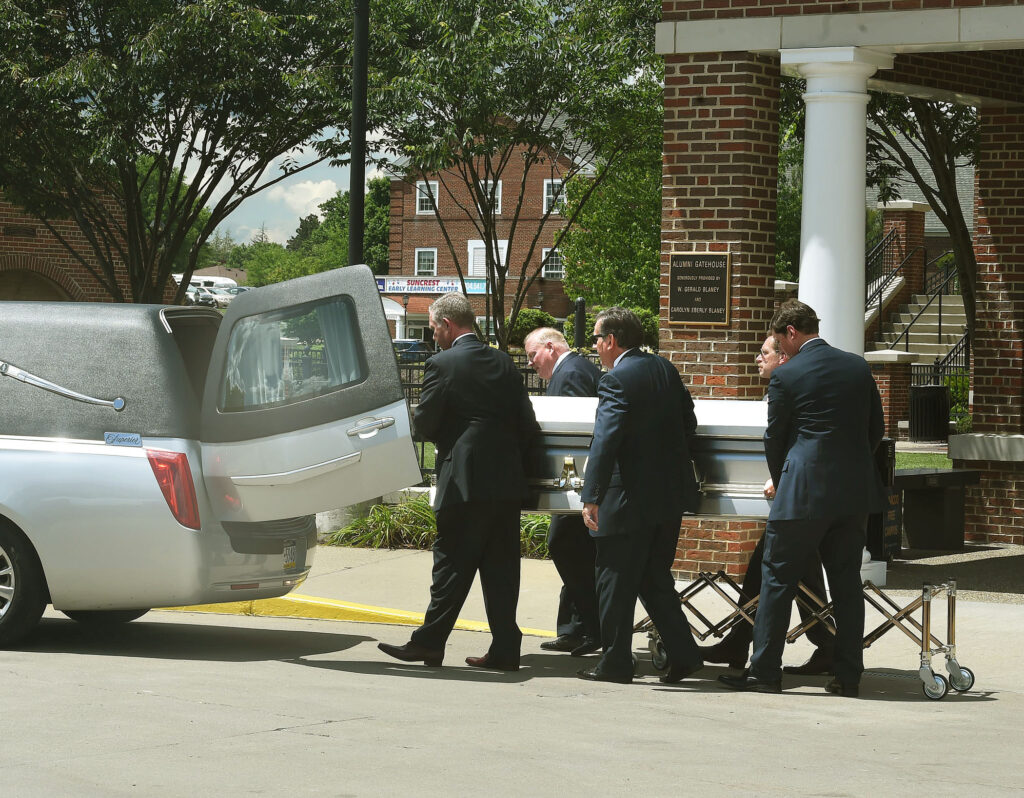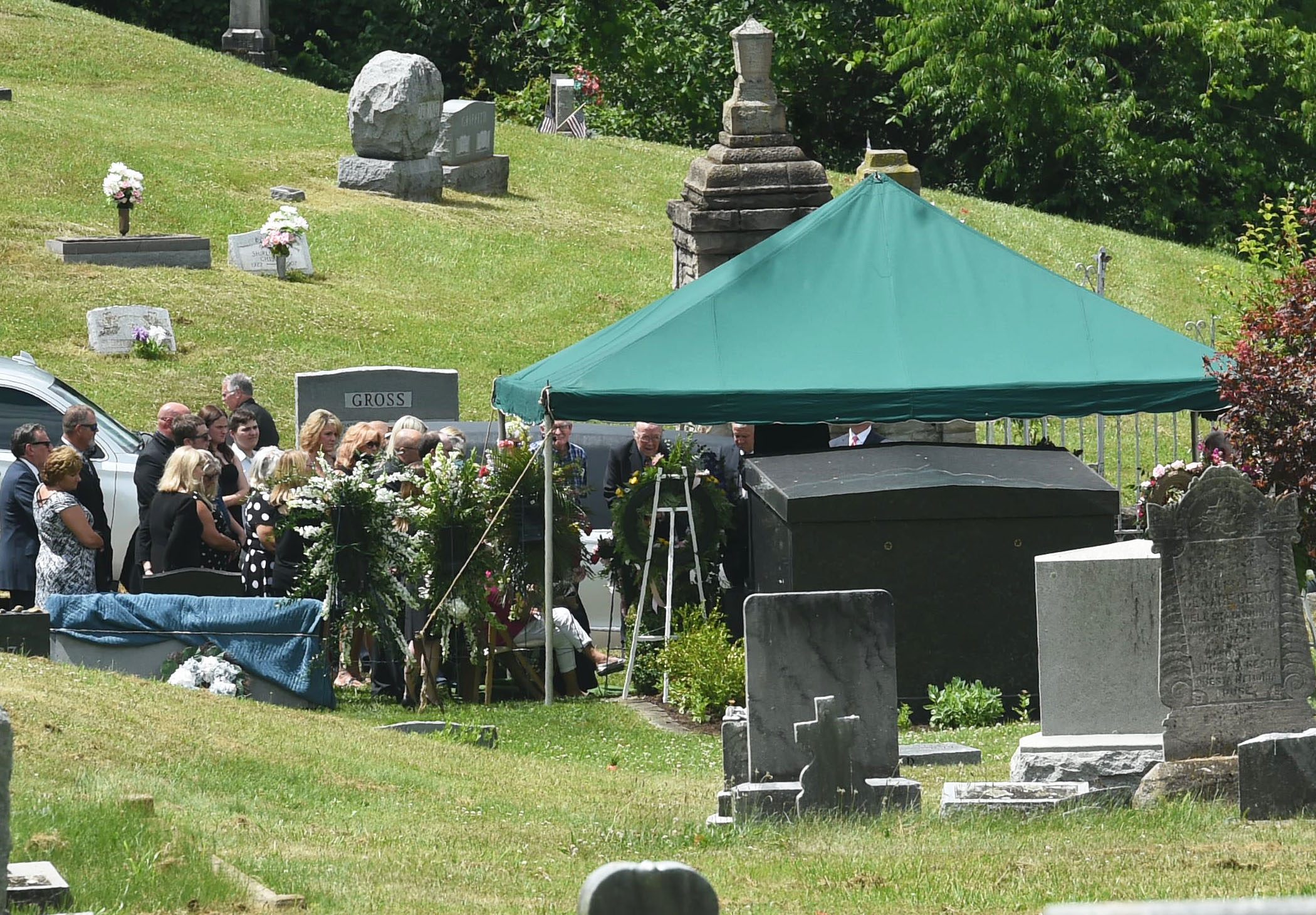

Sunlight winked off the handles and top of Betty Puskar’s silver-gray casket Friday afternoon, as it was being trundled into a hearse for a ride to Oak Grove Cemetery.
She would be placed in a mausoleum next to her former husband, Milan “Mike” Puskar, the Morgantown entrepreneur and benefactor who died in 2011.
In life, they just always seemed to be together — even when they weren’t.
Though divorced for several years, they were still the University City’s original power couple, lending their marquee names to causes across the region and their adopted hometown.
Mike Puskar, the working-class son of Serbian immigrants in Youngstown, Ohio, co-founded Mylan Pharmaceuticals and gave millions of dollars to Morgantown and WVU, in particular.
The stadium where WVU’s football Mountaineers play bears his name.
Betty Puskar, who was raised in a house without running water in rural Snake Run, Va., was told by her parents to work hard — while watching out for those less fortunate.
Work, she did, holding down jobs from waitressing to operating the looms at a textile mill while she put herself through business school.
And while she always did the other, it took on a grim urgency in 1985, when doctors told she likely had one to three years to live.
Metastatic breast cancer.
She was still bald and gaunt from the chemotherapy when she launched the lobbying and health advocacy work that would define the rest of her days.
Five years later, and two years past the medical death sentence her original doctors decreed, she cut the ribbon on the breast care center on WVU’s Evansdale medical campus that bears her name.
After that, she simply became the face of cancer awareness in West Virginia and the region, particularly for women.
Early detection.
Smart, aggressive treatment.
Prevention, prevention, prevention.
The icon (by name)
She was gracious with a regal style that people expected — and an impish sense of humor that people didn’t.
When she died last weekend at the age of 80 following a decline in health not related to COVID-19, the people who knew her, and those who knew of her, launched a steady trek to WVU’s Erickson Alumni Center, for her visitation and services.
One of them, U.S. District Judge Irene Keeley, delivered her personal verdict.
“Betty is a model of recovery,” said Keeley, a fellow cancer survivor.
“She’s an inspiration. She’s how you’re supposed to live. When I go to the Betty Puskar Breast Care Center for my mammogram, I look up at her name on the wall, and I smile.”
Terry Cluss, a longtime friend who lives in nearby Uniontown, Pa., had to smile when she put in an order for flowers.
The second she said, “Morgantown,” the florist cut in and said, “Oh. Betty.”
“She’s an icon. You say, ‘Betty,’ around here and everyone knows who you mean.”
It didn’t take long for Junius Lewis to learn the Puskar name.
He was a high school basketball star from her home state of Virginia recruited to WVU in the mid-1970s to play for the Mountaineers.
“I heard about Betty and Mike almost immediately,” Lewis said. “All the things they did for the community, and for WVU.”
Betty, respectfully
What Lewis did on Friday for her involved the matter of her eulogy.
He’s now an area pastor who conducted her funeral service.
It could have been a tall order, he said, even for a guy who scrapes the doorway at 6-foot-11.
But Betty Puskar, Lewis said, made his work easy.
All he had to do was talk about her, and how she talked — really talked — to the people she met daily.
“She didn’t care if you were a CEO or a custodian,” he said.
“She didn’t care if you were a kid bussing tables or a corporate president. She treated everybody with respect. That’s just how she was.”
And that ride in the hearse Friday wasn’t the final ride by any stretch, he said.
“She’s in Heaven,” the pastor said. “She’s laughing and she’s rejoicing.”
Her longtime friend John Fahey loves that thought.
“Betty was like Halley’s Comet,” he said.
“And how often does Halley’s Comet come around?”
TWEET @DominionPostWV






